Browse Teaching
Explore commonly taught topics along with related primary sources, discussion questions, teaching strategies, and annotated bibliographies.
Source Collection: Songs of the Revolution
Music and singing were fundamentally important parts of the revolutionary experience. Amateurs and formally trained composers alike produced thousands of songs and hymns that celebrated or criticized the Revolution. Men and women sang during revolutionary festivals, in bars, cafés, and theaters, and they fought with others who dared to sing royalist or reactionary songs.
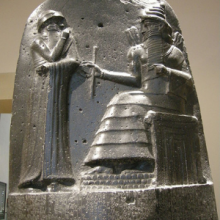
Short Teaching Module: Hammurabi's Code
An extremely useful source for discussions of Mesopotamian government and society is the Babylonian document Hammurabi’s Code (circa 1780 BCE). One of the most influential codifications of law in ancient history, the text provides students with a concrete example of the expanding influence of centralized government on the personal and professional lives of the general population.
Short Teaching Module: Women's Travel Writing
Women’s travel writing is a rich source for teaching world history. In this module, Patricia M.E. Lorcin explains how she uses two examples of women's travel writing to help students better understand a wide range of issues in world history.
Short Teaching Module: Maasai Murran as Rebellious Youth (20th c)
A number of societies in Eastern Africa, including the Maasai, divide the male life-cycle into distinct stages: childhood; murranhood (or "warrior"); and elderhood. Age-set societies like the Maasai are perhaps unusually explicit in the way that they divide up the life cycle whereas other societies find different ways of socialising the young and managing generational tension.
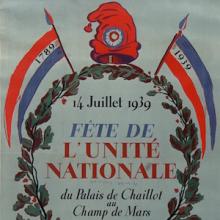
Source Collection: Legacies of the Revolution
The powerful influence of the French Revolution can be traced in the reactions of those who witnessed the event firsthand and in the strong emotions it has aroused ever since. For some, the French Revolution was a beacon of light that gave a world dominated by aristocratic privilege and monarchical tyranny a hope of freedom.
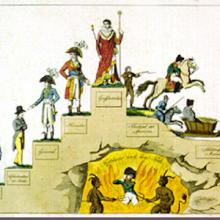
Source Collection: The Napoleonic Experience
The bare facts of the life of Napoleon Bonaparte stagger the imagination and rival the plots of the most fantastic novels. Born in 1769 in Ajaccio, Corsica, just as that island was passing from the hands of the Republic of Genoa to those of France, Bonaparte attended a French military school for impoverished sons of the nobility.
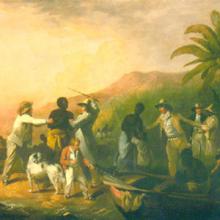
Source Collection: Slavery and the Haitian Revolution
Since the revolutionaries explicitly proclaimed liberty as their highest ideal, slavery was bound to come into question during the French Revolution. Even before 1789 critics had attacked the slave trade and slavery in the colonies. France had several colonies in the Caribbean in which slavery supported a plantation economy that produced sugar, coffee, and cotton.
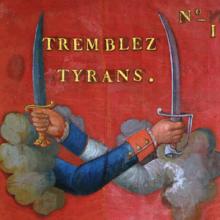
Source Collection: War, Terror, and Resistance to the French Revolution
One fault line that has divided inquiries into the Terror has been its connections to the democracy introduced in 1789. For some, the Terror had to occur, either to sweep away the remnants of the Old Regime or, from a more critical perspective, because the revolutionaries had inadvertently introduced authoritarianism with their seeming democratic principles.
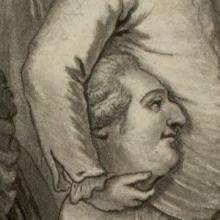
Source Collection: French Monarchy Falls
Although the monarchy had always struggled against elites over the definition of royal power, virtually no one could imagine France being governed without a king. At the outset of the French Revolution, only a handful of citizens had even contemplated a republic.
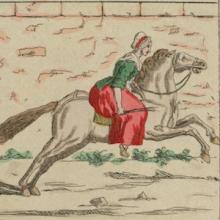
Source Collection: Women and the Revolution
Women participated in virtually every aspect of the French Revolution, but their participation almost always proved controversial. Women's status in the family, society, and politics had long been a subject of polemics.
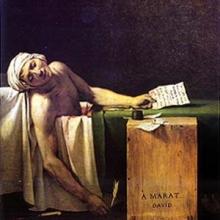
Source Collection: Paris and the Politics of Rebellion
The world was shocked by the swiftness and strength with which radicalism emerged in the first years of the Revolution. Interestingly, it is not so surprising that throughout the two centuries that have elapsed since then, labor has remained mainly arrayed on the political left. But was this an inevitable circumstance of the French Revolution?
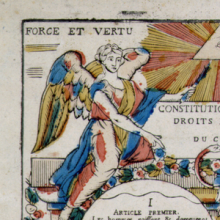
Source Collection: The Enlightenment and Human Rights
When the French revolutionaries drew up the Declaration of the Rights of Man and Citizen in August 1789, they aimed to topple the institutions surrounding hereditary monarchy and establish new ones based on the principles of the Enlightenment, a philosophical movement gathering steam in the eighteenth century.

Source Collection: Monarchy Embattled
Reality never matched the popular image of the all-powerful French King. Even Louis XIV, exalted by his own propagandists and many historians as the Sun King, never actually enjoyed that kind of authority. Theories of divine right, which linked the King to God, proved untenable for many.
Short Teaching Module: Modern Racism in the U.S. and South Africa
This module has students examine the roots of “modern” racism and make connections between the status of Black individuals in the United States and in South Africa. This approach is designed to foster a discussion on American “exceptionalism,” in particular that U.S. history is also rooted in colonial and imperial relations, exchanges and forced migrations. If students have not studied U.S.
Short Teaching Module: Women in Classical Athens and Sparta
Primary texts about women in classical Athens and Sparta provide an excellent, if extreme, example of one of the main themes in the 100-level “World History to 1500.” This theme is the relationship between social structure and political institutions.
Short Teaching Module: Gender and Race in Colonial Latin America
When I teach a survey of the colonial history of Latin America, I often focus on the era’s cultural history, and specifically on the issue of hegemony and resistance.
Source Collection: Social Causes of the French Revolution
Instead of bringing unity and a quick, political resolution to the questions of 1789, as intended by its originators, the Revolution was producing further conflicts. What had happened? Had the revolutionaries expected too much? Did the fault lie with the new political elite, because they excluded the lower classes from the optimistic prospects for change?
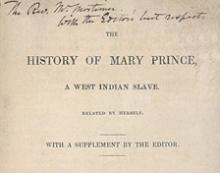
Short Teaching Module: Slavery, Labor, and Gender
In this case study, developed for a lower-division lecture class on “World History 1400-1870,” students explore gender though a primary source the personal account, “The History of Mary Prince, A West Indian Slave Related by Herself.” This first-person account was written by British abolitionists and disseminated through the London Society for the Abolition of Slavery in 1831.
Short Teaching Module: Humor as Resistance
In order to help students think about the dynamics of power in different kinds of societies, this case study attempts to challenge the black-and-white thinking to which students are inclined when thinking about Communism. By analyzing jokes from the German Democratic Republic (East Germany) we can see how people sought to create their own sense of freedom.
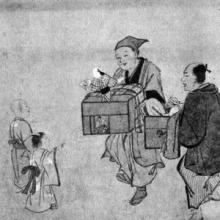
Long Teaching Module: “Reading” Primary Sources on the History of Children & Youth
How do you study the history of young people? What can primary source documents reveal? What limitations do they pose? What light can the history of young people shed on the past? This essay aims to serve as a guide to finding, interpreting or “reading” primary sources on young people from ancient civilizations to the present.